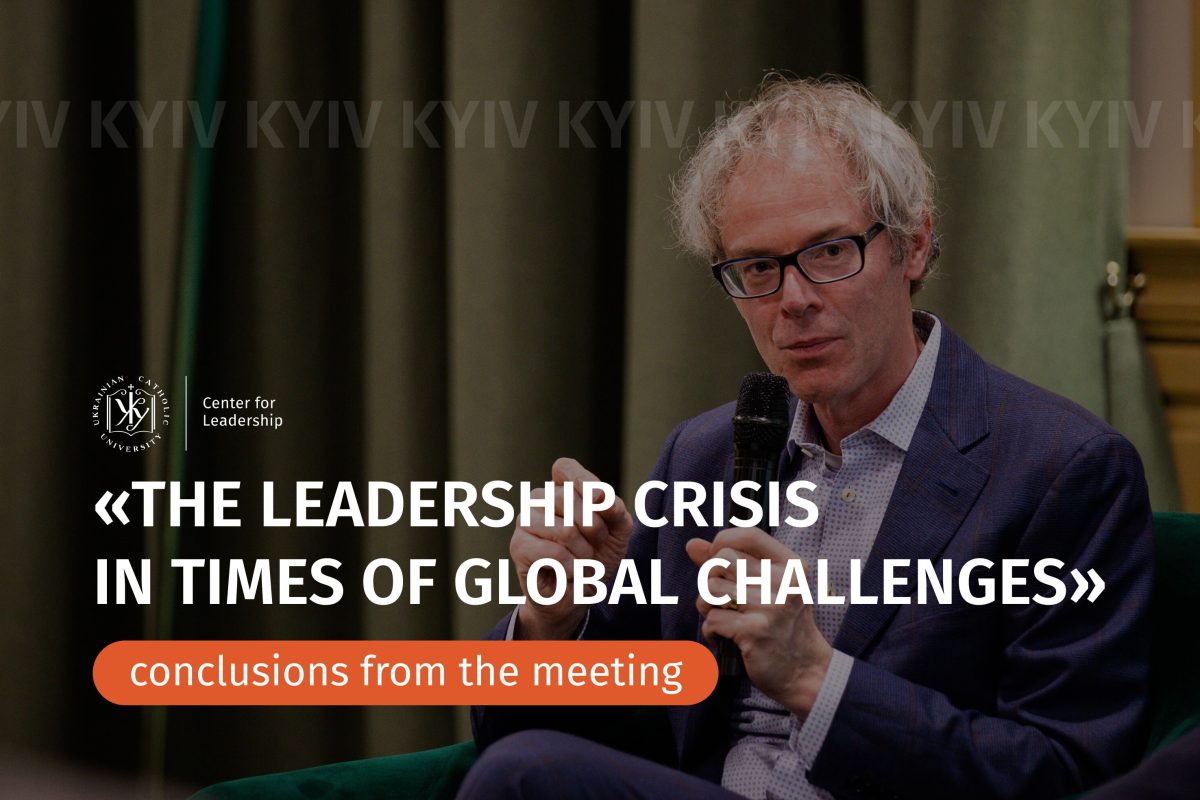
How to Be a Leader in Times of Crisis: Recommendations from the Kyiv Meeting
Hard times create strong and good men.
Strong and good men create good times.
If one were to describe the meeting with Gerard Seijts in Kyiv on May 22 using the words of another speaker, Andy Hunder, this would accurately encapsulate the essence of the discussions during this panel.

This theme emerged from the responses of Gerard Seijts, Andy Hunder, and Sofiia Opatska to the questions posed by the event’s moderator, Andrii Rozhdestvenskyi.
Discussing the “Leadership Crisis in Times of Global Challenges” is difficult because we all experience disappointments in the authority of organizations. Challenges are increasing, many problems remain unsolved, and sometimes it seems that we have no one to rely on but ourselves. We have compiled several recommendations from the experts’ insights that may be useful to readers. However, let’s be honest: such meetings are most energizing in person when you feel the support of a community that shares your values and finds time for self-development amidst all activities.
We hope the following thoughts from the speakers at the meeting will inspire you to lead even in times of crisis:
- It is impossible to build leadership without asking yourself: “Who do I want to become?” The Leadership Crisis today is, in part, a crisis of Character, so it is important to ask yourself: what kind of person must I become to be a Leader?
- Three things Leaders should consider: Purpose, Resilience, and Legacy.
- A Leader today is ready to change plans. Developing adaptability, the ability to quickly create new strategies, and the skill to find opportunities in everything can keep you afloat today.
- A Leader amidst global challenges understands that the value of their work may not be immediately apparent. No primary school teacher realizes they are nurturing a future president of their country. However, their influence on the decisions this Leader will make is significant.
- A Leader in difficult times understands the importance of their resources, which can sometimes mean very simple yet effective things like a good night’s sleep or a delicious meal. For others, it might be inspiration from other Leaders, such as communicating with military personnel.
- Leaders must understand that there is strength in Humility. It is important to acknowledge that you do not have all the answers and not pretend that you do. This openness is crucial for learning from the world.
- You will not be able to avoid crises now or in the future. Yes, you can acquire skills that will help you deal with challenges, but most importantly, you must learn to manage your attitude toward these problems.
- Grow as Leaders by learning. If you do not study and strengthen your Character, and develop humility, humanity, critical thinking, and other virtues, what kind of leaders will you be? Good technical specialists, but with what values? Will they be Leaders?
We thank everyone for participating in this meeting in Kyiv and Lviv and invite you to join all our social networks and stay connected for future projects. Don’t miss the upcoming events from the Center for Leadership of UCU!